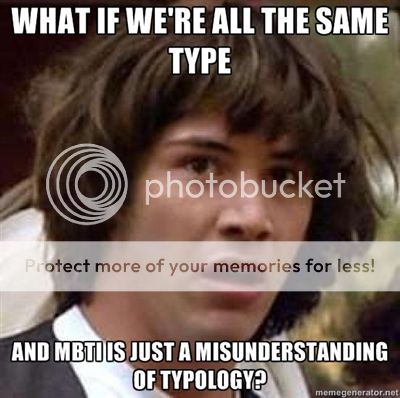Salomé
meh
- Joined
- Sep 25, 2008
- Messages
- 10,527
- MBTI Type
- INTP
- Enneagram
- 5w4
- Instinctual Variant
- sx/sp
I meant it's worse than a link to the internet.
/self-referential
They used a retarded version of MBTI/Keirsey at my last workplace (Red, Blue, Green, Yellow) to decide how to train/who to promote (they wanted Red managers). An HR woman gave me a lecture on it (and clearly didn't understand the first thing about it.) She thought I was Red. And told me "Introverts are like batteries that recharge when they sleep". Um..sure...whatever you say. She said most people in IT were Blue (NT, so right there), but that Blue = "being good with details." :facepalm: Clearly, she wasn't very Blue herself.
/self-referential
They used a retarded version of MBTI/Keirsey at my last workplace (Red, Blue, Green, Yellow) to decide how to train/who to promote (they wanted Red managers). An HR woman gave me a lecture on it (and clearly didn't understand the first thing about it.) She thought I was Red. And told me "Introverts are like batteries that recharge when they sleep". Um..sure...whatever you say. She said most people in IT were Blue (NT, so right there), but that Blue = "being good with details." :facepalm: Clearly, she wasn't very Blue herself.
Last edited:


